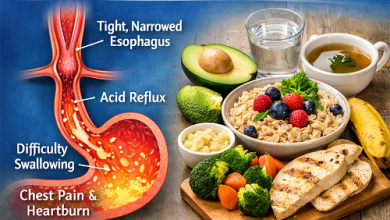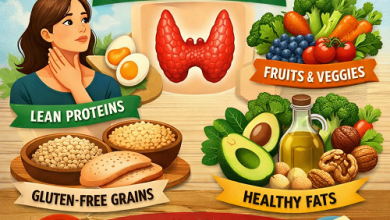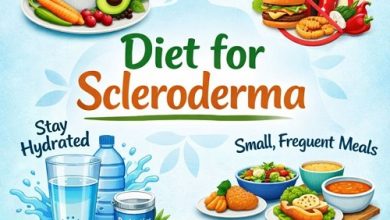Anti-Aging Diet For Aging Skin

Definition
The anti-aging diet is one that limit calorie intake by 30–50% of usual or recommended intake with the objective of rising human lifespan by at least 30%. People on the Diet also have enhanced health providing they use adequate vitamins, minerals, and other important nutrients.
Description
Anti-aging diets are regimes that decrease the number of calories consumed by 30–50% while allowing the essential amounts of vitamins, minerals, and more nutrients the body needs to maintain it and grow. This calorie restriction has been shown to increase the lifespan of various animals, including fish, fruit flies, by 30–50%. Some individual studies have also been done and long-term studies are underway but confirmation of its impact on humans is very limited compared to results available from the animal studies.
Calorie restriction is a lifelong approach to eating by extensively lowering daily calorie intake while still getting all the body’s necessary nutrients. People who experience starvation or famine receive no longevity benefits because their low calorie intake contains little nutrition.
The diet plan is believed to most benefit people who start in their mid-20s, with the useful effects decreasing proportionately with the age one begins the diet.
Even if there’re variations between anti-aging diets, most reduced calorie diets suggest a core set of food. These include fish, vegetables, fruits, soy, low-fat or non-fat dairy products, avocados, nuts, and olive oil. The primary beverages optional are water and green or black tea.
Key Terms
Alzheimer’s Disease
- A degenerative disorder that effects the brain, causing dementia and loss of memory generally late in life.
Antioxidant
- Substance that inhibits the unhelpful effects of oxidation in the body.
Body Mass Index
- A scale that expresses a person’s weight in relation to height.
Calorie Reduction
- A reduce in the number of calories that a individual consumes.
Free Radicals
- Highly reactive atoms or molecules that can damage DNA.
Osteoporosis
- A disease that causes bones to become porous, break easily, and cure slowly.
Testosterone
- A male sex hormone responsible for secondary sex characteristics.
Parkinson’s Disease
- An incurable nervous disorder marked by symptoms of trembling hands and a slow, shuffling walk.
Deoxyribonucleic Acid
- A nucleic acid molecule in a twisted double strand, called a double helix, which is the main component of chromosomes. DNA carries genetic information and is the basis of life.
A sample one-day low-calorie, high-nutrition menu developed by Walford is:
Breakfast
One cup of orange juice, one boil egg, one slice of mixed whole-grain bread, and one cup of brewed coffee or tea.
Lunch
One tablespoon of toasted wheat germ, One-half a cup of low-fat cottage cheese mixed with one-half a cup of non-fat yogurt, an apple, and one whole wheat English muffin.
Dinner
Three ounces roasted chicken of breast without the skin, one cup of steamed spinach and a baked potato.
Snack
An oat bran muffin, five dates and one cup of low-fat milk.
The three meals and snack contain 92 g protein, 1,472 calories, 24 g fat, 234 g carbohydrates, 27 g fiber, and 310 g cholesterol.
Benefits
The main benefits of the anti-aging diet are better health and prevention or forestalling diseases such as cancer, stroke, heart disease, osteoporosis, diabetes, Alzheimer’s, and Parkinson’s. Studies show that most physiologic functions and mental abilities reduced calorie diets correspond to those of much younger animals. The diet has also demonstrated extension of the most lifespan for most life forms on which it has been tested.
Function
The objective of the anti-aging diet is to slow the aging process, thus extending the human lifespan. Even though it is not a lose weight diet, people taking in extensively fewer calories than what is careful regular by nutritionists are likely to Weight Loss. Exercise is not part of calorie reduce diets. Researchers suggest people slowly transition to a reduced calorie diet over one or two years because a sudden calorie reduction can be unhealthy and even shorten the lifespan.
Precautions
A reduced calorie diet is not suggested for people under the age of 21 since it may weaken physical growth. This impairment has been seen in research on young laboratory animals. In humans, mental growth and physical changes to the brain happen in teenagers and individual in their premature 20s that may be negatively affected by a low-calorie diet.
Other persons advised against starting a calorie-restricted diet include women who are pregnant, women who plan on getting pregnant, and those who are nursing babies. A low body mass index, which happens with a low-calorie diet, is a risk factor in pregnancy and can effect in dysfunctional ovaries and infertility. A low BMI also can cause early birth and low birth weights in newborns. People with existing diseases or medical conditions are discouraged from reduced calorie diets. They must be particularly cautious and consult with their physician before starting.
By : Natural Health News




